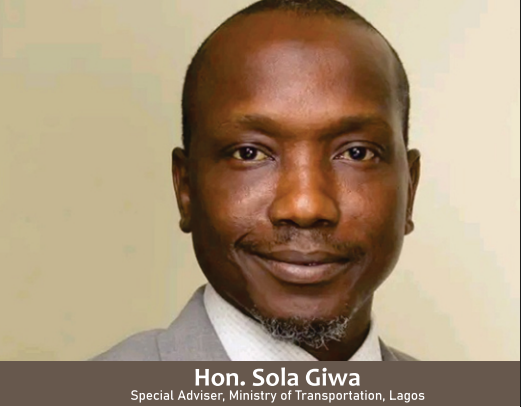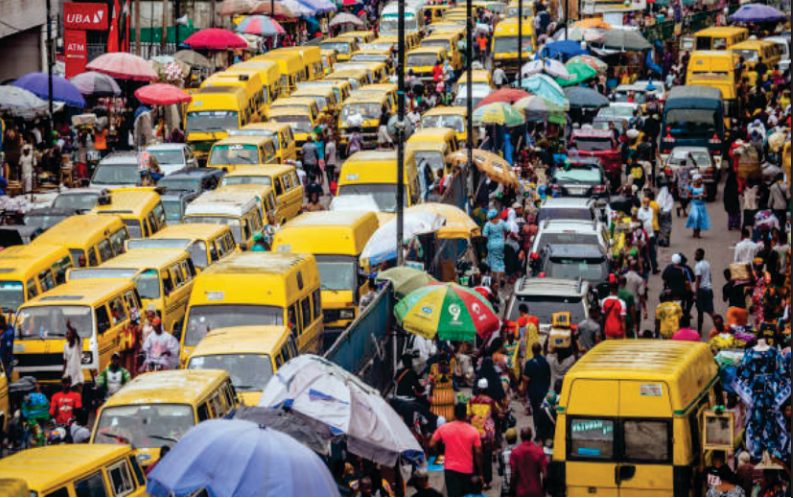
LAGOS LOSES N4TRN ANNUALLY TO TRAFFIC CONGESTION — GOVT
- Road
- July 21, 2025
- No Comment
- 340

The Lagos State Government has said that Lagosians lose about N4 trillion annually to traffic congestion across the state, the Special Adviser to the governor on Transportation Sola Giwa has said.He disclosed that this is because an average of four hours is lost daily to traffic congestion on roads within the state.
Speaking during a recent appearance on TVC News, the Special Adviser to the Governor on Transportation, Mr. Sola Giwa explained that to enhance logistics coordination, reduce traffic congestion, and boost road safety, the government has commenced the enforcement of an Electronic Call-Up (E-Call-Up) system, with effect from Monday, June 16, 2025, for all tankers and articulated vehicles operating along the Lekki-Epe corridor.
Giwa who said the new regulated system would help reduce annual losses explained that all tanker and articulated vehicle drivers entering the Lekki-Epe corridor for business must now register and schedule their movement through the E-call-up platform.He noted that the digital platform is designed to coordinate truck movements, reduce indiscriminate roadside parking, and minimize disruptions to other road users.
He attributed much of the gridlock on the roads to unregulated parking and disorderly loading and unloading activities along major logistics routes.
According to Giwa: “Under the new system, tanker operators will be required to upload their Authority To Load (ATL) and pre-book assigned parking slots before arriving in Lagos.
He said the E-call up platform will also collect vital travel and cargo information, enabling efficient allocation of designated parking spaces, noting that the facilities will be equipped with basic amenities such as restrooms, kitchens, and electricity to ensure the comfort and safety of drivers.
Mr Giwa further disclosed that the government had approved seven dedicated truck parks along the Lekki-Epe axis to support the system’s implementation.
He emphasized that the policy is the outcome of over two years of extensive stakeholder engagement and forms a critical part of the State’s broader transportation reform agenda aimed at transforming Lagos into a smart, resilient, and livable city.
Regulating for Life: Nigeria’s Road Transport Overhaul for Safety and Growth
Not too long ago, navigating Nigeria’s roads felt like a daily gamble, an unpredictable blend of human error, mechanical failure, and regulatory absence. But change, long overdue, has begun to unfold, steadily, deliberately, and with life at its heart. In this article, OLUSEMIRE JEGEDE looks at how Nigeria can make a bold attempt to rewrite its road transport narrative. At its core is a nationwide push to save lives, restore order, and create a transport ecosystem that supports both safety and economic growth.
Nigeria’s road transport sector stands at a crossroads of existential urgency and transformative opportunity. Accounting for 90% of passenger mobility and 80% of freight movement, it remains the nation’s economic bloodstream, yet one poisoned by 41,000+ annual fatalities and ₦4.6 trillion in economic losses. This crisis stems not from isolated failures but from fragmented governance, where overlapping mandates between the Federal Road Safety Commission (FRSC), state Vehicle Inspection Offices, disjointed traffic agencies, and informal unions create enforcement chaos.
The path forward demands a unified framework, beginning with the operationalisation of the shelved National Road Transport Bill to establish a National Road Transport Council (NRTC). This central body would harmonise databases, clarify jurisdictional boundaries between federal and state authorities, and introduce “One Transport Cards” for nationwide compliance tracking, turning bureaucratic silos into a cohesive safety network.
Technology must become the backbone of enforcement. Paper-based roadworthiness certificates, vulnerable to forgery, should be replaced by automation of digital credentials. High-fatality corridors like Abuja-Lokoja and Kano-Kaduna urgently need AI-powered surveillance cameras to automate speed and overload detection. Meanwhile, the FRSC mobile courts, a proven model for swift justice, should scale to all 36 states, ensuring real-time accountability. These digital tools aren’t mere upgrades; they are corruption-resistant shields protecting both citizens and officers from compromise.
Transport unions like National Union of Road Transport Workers (NURTW) and Road Transport Employers Association of Nigeria (RTEAN), which dominate 85% of motor parks, represent untapped potential rather than intractable adversaries. By transitioning them into accredited operator associations, managing terminals under strict digital fee transparency and safety audits, they can evolve from gatekeepers to partners. Terminal modernisation through Public Private Partnership, exemplified by Lagos’s Oshodi transformation, offers a blueprint: unions gain equity stakes in exchange for adopting QR-code payment systems that eliminate cash-driven “agbero” extortion. This formalisation aligns their interests with public safety while preserving livelihoods.
Economic incentives must reward compliance, not punish poverty. Redirecting existing union levies into a Safety Upgrade Fund could provide low-interest loans for drivers to replace rickety vehicles. Embedding third-party insurance into vehicle registrations, via National Insurance Commission (NAICOM) partnerships, would address the scandal of 75% uninsured commercial vehicles. Compliant operators could even gain priority lanes at toll plazas, turning safety into a competitive advantage. These mechanisms recognise that regulation succeeds when it makes ethical choices economically viable.
State-level innovations prove reform is possible. Lagos’s digitised vehicle inspections and empowered The Lagos State Traffic Management Authority (LASTMA) offer replicable templates. A federal knowledge-transfer programme could export this model to 10 pilot states while legislating Metropolitan Transport Authorities to manage terminals and traffic flow without federal overreach. Joint FRSC-state patrols on critical corridors like Enugu-Onitsha would unify standards, demonstrating that co-operative federalism, not centralisation, holds the key.
The National Road Transport Bill, first drafted in 2012, passed by the Senate in 2019, yet stalled in legislative limbo since, must now be awakened as a catalytic tool. Its dormancy stems from jurisdictional disputes between federal and state authorities, union resistance to formalisation, and competing parliamentary priorities. Prioritising Lagos, Rivers, Kaduna, and the FCT as Phase-1 enforcers by 2025 creates immediate proof points. Including union representatives and tech innovators on NRTC advisory boards ensures ground-truth insights, while a mandatory biennial review clause guarantees agility. The cost of delay is measured in graves: Nigeria’s annual road death toll equals eight fully loaded Boeing 737s crashing. Yet the dividend of reform is within reach, Rwanda’s digital driver licensing reduced bribery by 70% in 18 months, while Indonesia’s Transport Safety Fund turned road losses into infrastructure gains.
In the end, this is not about blame but redemption. By harmonising governance, deploying transparency tech, and transforming unions into stakeholders, Nigeria can convert its deadliest highways into arteries of prosperity. The road transport crisis is a mirror reflecting our collective choice: perpetuate chaos or build a system where safety, efficiency, and equity converge. The wheels of change must turn now, before more lives bleed into the asphalt.




